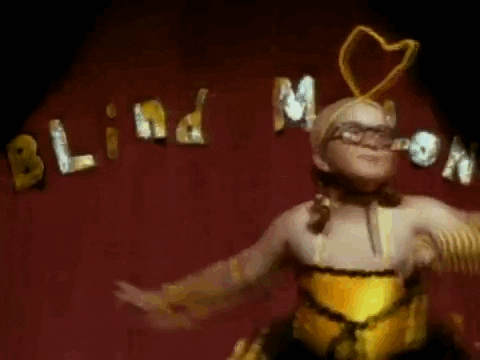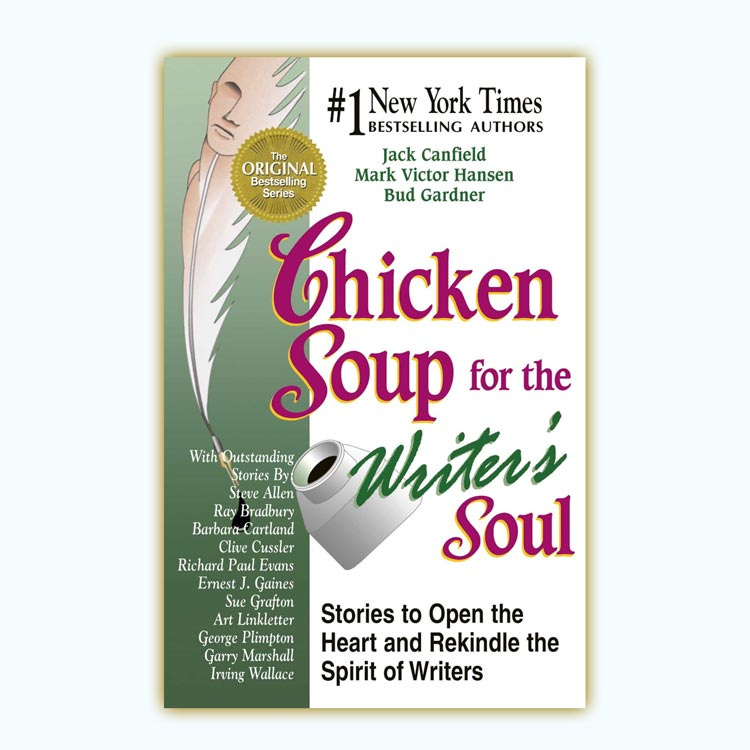✍️ No Rain
Or, What Rejection Is, What It Isn’t, and How to Get Through with Your Motivation Intact
There is an author, we’ll call them “Author”, who doesn’t deal with rejection well. Which is to say, Author acted almost as if their goal was to be rejected. They kept submitting and submitting dozens and dozens of times, like they’d never learn. Not only that, Author still has a sick fascination for hearing about other people’s stories of adversity, too.
“I love collecting stories of people who have overcome, people who have done the loving thing, taken the risk, contributed, made a difference. The kind of things that when you read them, you smile, you get inspired, you get goosebumps. There’s a science to that now: positive psychology. Everything we used to do intuitively is now backed up by neuroscience.”
That positivity is positively creepy, right?
Author themself was rejected 144 times before getting their piddly little book published. One hundred and forty-four times – that’s literally gross. That 145th publisher took the book on, hoping beyond hope that it would sell 20,000 copies. That wouldn’t be bad for a small regional imprint. Apparently, they laughed when Author said 500,000 was more like it.
Both Author and Publisher were wrong. To date, the book and ones that followed have sold 110 million copies worldwide and is now a billion-dollar (US) industry.
Any guesses who “Author” is? I hear someone saying JK Rowling. Oh, was Zane Grey mentioned? Danielle Steele – another good guess. Dan Brown, Stephen King, F. Scott Fitzgerald? All good guesses.
And all wrong.
Author is actually somebody you’ve probably never heard of – though you’ve definitely heard of his books. That first one, Chicken Soup for the Soul by Jack Canfield, was on the New York Times bestseller list consistently from 1994 to 1998.
Guess he knew he was onto something and just stuck with it even after all the rejections.
Rejection is Part of Acceptance
For the record, this post isn’t one of those “he sold a billion and so can you!” posts. I’m not here to get your hopes up about winning the lottery.
No, this post is about what to do when faced with rejection. Consider this. When I asked you to guess who Author was, you probably immediately came up with a couple of names. If you sat and thought about it for even a short while, you could have easily come up with a dozen or more. In fact, guessing authors who have rejections is almost exactly like shooting fish in a barrel. That’s because every famous writer at some time or another has experienced rejection.
But you know what? Who cares! Because it doesn’t matter how many writers have been rejected how many times, it still stings when it happens to you.
This I know from personal experience.
So the first question is, will you let that pain today stop you from trying and maybe getting published tomorrow? If “Yes”, then stop reading, throw out your laptop, and find another vocation. But if “No” (and I hope it’s “No”…), let’s talk more about what’s at work here and how to overcome it.
If you’re on the fence, Jack Canfield has some more words of wisdom for you. He once said, “If we had given up after 100 publishers, I likely would not be where I am now.” Which is absolutely true! I’m sure going through all those rejections was a mental, emotional, and busy-work slog. But he believed in his work, kept putting it out there, and eventually was proved right – big time.
Before we go any further though, I want to give a shoutout to Donna White, a friend, fellow writer, and fellow Fox for suggesting this topic. Check out her latest book, Selling Katie, on her website (not to mention her library of others…)
What Rejection Is, What It Isn’t, and How to Get Over It
What kind of tea do you like? Earl Grey? Chamomile? Plain ol’ Orange Pekoe? Or maybe you don’t like tea at all. Of course, the tea doesn’t take offence because it doesn’t have feelings. So it’s easy to see that it’s nothing personal – choosing a favourite tea can’t be personal by definition.
Yet we do take it personally when someone doesn’t like our work. I’m not saying your feelings are wrong by any means. But it’s helpful to find a way through those feelings for our own good. It starts by remember that like choosing tea, reactions to your writing is nothing personal.
Let’s start by talking about what rejection is and isn’t.
Rejection is…
A realization by someone else that the piece they read is not for them
If it’s a contest, simply a luck-of-the-draw situation where one piece of writing resonated more with the judges than yours (though other judges, had they been there instead, may have chosen your work)
If it’s a publication, could be a million things including they recently published a similar work, they ran out of room, or it just didn’t resonate with them on that particular day (see point above)
An opportunity to learn (I know, sappy – right? But true…)
Rejection is not…
A personal attack on you
A comment on your worth as a person
Meant to hurt you in any way (even though it does)
The end of the world – or your writing life
How to Get Over Rejection
Realize That There Isn’t a Universal “Best”.
My favourite book is The Great Gatsby. Many people don’t like it, don’t get it, don’t even understand why others call it “the best”. One of my favourite movies is The English Patient, a film reviled by so many people that there is actually a Seinfeld episode about how boring people think it is. And you know what? That’s okay. One person’s art is another person’s Sack Lunch (the fictional movie Elaine compares The English Patient to in the Seinfeld episode) – and vice versa. Your writing is subject to these same Laws of Art.
The trick, of course, is to find the people out there who do love your work…
Realize That Your Writing is Not You.
A toughie for sure. We all feel that our work is a part of ourselves. But if you can separate yourself from the work, it gets a lot easier. Time helps, though you’re never going to be totally objective. You’ll always be rooting for your short story or poem or CNF to win. The difference is, if you can give yourself even a little bit of separation, it won’t feel as life-or-death as it does now.
Give Yourself Some Love.
As we’ve discussed previously, self-compassion is crucial for writers – and it will help you get over rejection, too. Sometimes giving yourself love means just giving yourself a break. Sometimes it means Ben & Jerry’s Chunky Monkey. Sometimes it’s a weekend in Vegas. Whatever your penchants and predilections, do something just for yourself to keep your motivation up and to get through the rough patches.
Keep Writing.
“If at first you don’t succeed, try, try again.” Even if it takes 145 tries or more.
One Last Thing…
If someone like a judge in a contest or a publisher takes the time to give you feedback, this is a good sign! Usually it means that you just missed with them, or that at the very least they see potential in your work. Always take the time to thank them for the feedback (unless they specifically ask you not to contact them of course). But most importantly, really consider what they are saying to you. You don’t have to take everything they say as gospel – see the first point above about there not being a universal “best” – but if a publisher is telling you what you could do to be successful in the future, it’s at least worth considering!
Key Takeaway: There is no way to avoid rejection if you are going to submit your work to contests and publications. It’s how you manage rejection that counts. Remember it’s not personal. That “no” doesn’t mean it’s not good enough. It just means you haven’t found the right home for it yet. Hold out for that yes!
Over to You
Do you have any stories about rejections or any tips on how to deal with it? Let us know in the comments below!
I’ll leave you with one of my favourite music videos, which everyone of a certain age will recognize and seems apropos of everything. Which, if you know the video, is immediately apparent. And if you don’t — give it a quick look. The story and message told in the visuals are amazing.
Until next time, keep being the Bee that you are, and keep buzzing until you find the garden where you belong. And of course, keep writing with wild abandon!
~Graham
email me if you get lost.








